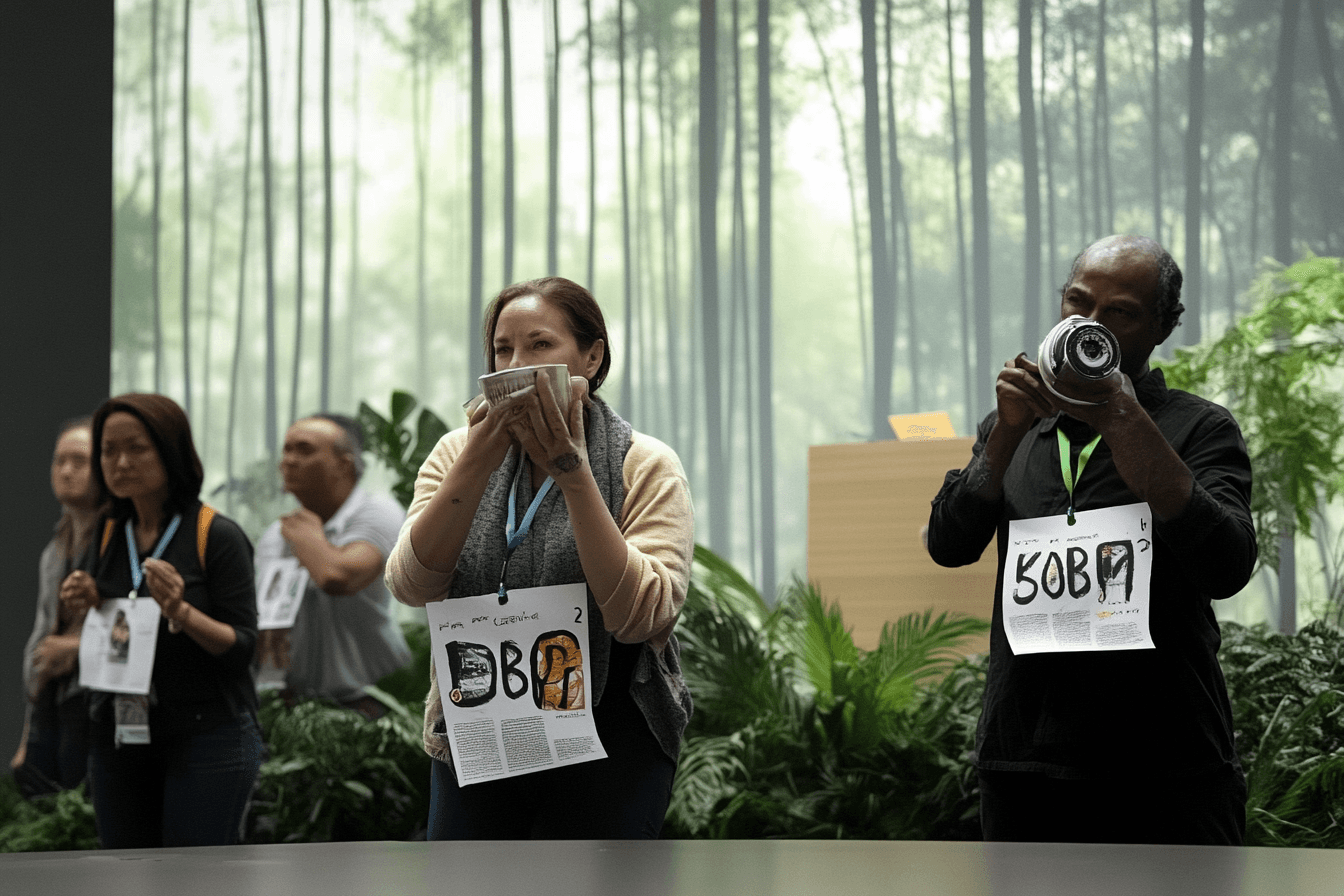🌍 COP29: $250bn pledged to climate change, but it’s only 8% of global profits!
At COP29 in Baku, a new climate finance agreement was brokered after intense negotiations and a walkout by developing nations. The final deal commits wealthy countries to provide $300 billion annually by 2035 to help vulnerable nations shift to low-carbon economies and adapt to climate change impacts.
While a step forward, this falls significantly short of the $1.3 trillion per year requested by developing nations, leaving much of the gap to be filled by the private sector and international institutions.
Commentary from experts on the agreement have been less than positive, with some going as far as suggesting that “No deal is better than a bad deal”.
This might be fair considering that campaigners highlighted that “the $250bn figure totals a mere 8 per cent of the $2.97 trillion in profits made by the world’s biggest companies in the last financial year”.
The Scope of the Commitment
The $300 billion pledge aims to address two critical areas: helping poorer nations transition to renewable energy systems and mitigating the immediate effects of climate change, such as extreme weather events and rising sea levels. However, the reliance on mobilizing “all public and private sources” to bridge the financial gap raises concerns about the feasibility of meeting the $1.3 trillion target. Institutions like the World Bank are expected to play a central role, but political factors, particularly U.S. influence, could complicate progress.
Challenges in Implementation
Distributing these funds effectively remains a substantial challenge. Observers stress the need for mechanisms that ensure financial aid reaches the nations and communities most in need. Additionally, climate experts warn that even with $300 billion, many nations may lack the resources necessary to prepare for escalating climate impacts.
Critics have also highlighted a growing perception that climate change is slipping down the agenda for many world leaders, who are focused on domestic issues such as inflation and economic recovery. Yet, as recent floods in Spain and other developed countries have shown, the climate emergency is increasingly affecting wealthier nations, underscoring the need for global action.
A Broader Perspective on COP29 Negotiations
The COP29 summit in Azerbaijan was marked by contention, with fossil fuel-producing nations accused of diluting the final text. The Azerbaijani hosts also faced criticism for their handling of negotiations, including President Ilham Aliyev’s controversial comments describing oil and gas as “a gift from God.” These dynamics contributed to a sense of stagnation, with some delegates framing the summit as a “last stand” for fossil fuel interests.
Despite these challenges, the agreement in Baku represents incremental progress, particularly by formalizing long-term commitments to climate finance. However, many observers view this as insufficient to meet the Paris Agreement’s goals, particularly as 2024 is projected to surpass the 1.5°C warming limit for the first time—a symbolic yet deeply concerning milestone.
What Is COP?
The Conference of the Parties (COP) is the decision-making body of the United Nations Framework Convention on Climate Change (UNFCCC), established in 1995 to address global warming. It brings together representatives from nearly every country to negotiate climate action. Previous COPs have produced landmark agreements, including the Kyoto Protocol (1997), the Copenhagen Accord (2009), and the Paris Agreement (2015). While these events have often been criticized for slow progress, they remain the primary platform for global climate diplomacy.
Conclusion
The agreement at COP29 is a step forward but highlights the persistent gap between ambition and reality. As climate challenges intensify, the ability of wealthy nations to meet their financial and leadership commitments will be critical to achieving a sustainable and equitable future. Whether the promises made in Baku translate into tangible progress remains to be seen.
References
- EU raises cash offer to poor nations at deadlocked climate talks. Channel News Asia (2024). Available online. Accessed: 25 November 2024.
- Kate Abnett, Valerie Volcovici and Karin Strohecker (2024). Developing nations blast $300 billion COP29 climate deal as insufficient. Reuters*. Available online.* Accessed: 25 November 2024.
- Kate Devlin (2024). Cop29 deal criticised as a ‘death sentence for millions. The Independent. Available online. Accessed: 25 November 2024.
- Stuti Mishra (2024). ‘No deal is better than a bad deal’: Cop29 deadlocked over climate fund. The Independent. Available online. Accessed: 25 November 2024.
For more info on our brands, head over to DooGood (bamboo toilet paper) and Teevo (eco-friendly, compostable tableware).




